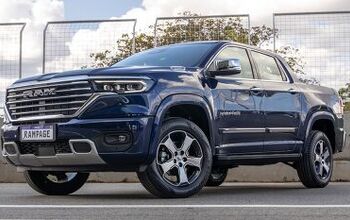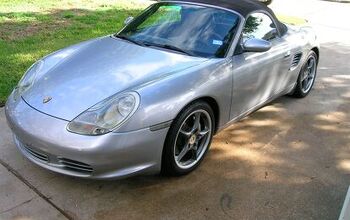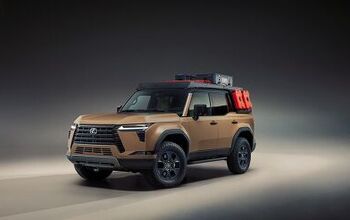London Olympics High On Hydrogen

The London 2012 Olympics promise to be a “low Carbon” affair. The London games will have everything from a low carbon Olympic flame to official energy provider EDF providing 24MW of energy from renewable resources. Even the official Olympic fleet is getting in on the “low carbon” act. What else is there to do? Right: The humble British Black Cab is getting the “low carbon” treatment. It’s coming from a source that had already been written off: Hydrogen.
The Guardian reports that a new Black Taxi Cab is being developed with the hope of being ready for road trials by 2012. The Black Cab will look exactly the same as the normal diesel cabs, but underneath hides a hydrogen power train developed by Lotus.
A drag racer it will be not: The fuel cell taxi can go to a top speed of 81mph, go from 0-60mph in 14 seconds and get about 250 miles on a full tank of hydrogen. “The intent is to take the taxis and retrofit a powertrain that has zero tailpipe emissions,” said Henri Winand of Intelligent Energy, the company making the fuel cells for these taxis. “But also it has to deliver some very important things: a reasonable range, very quick refueling time and no modifying the passenger or driver space.”
London’s deputy mayor, Kit Malthouse aims to have 6 hydrogen filling stations in London by 2012 to help the deployment of these taxis. He wants 20-50 fuel cell taxis in operation as well as 150 hydrogen powered buses. Lotus is very proud of this project. “There is a global drive to reduce CO2 emission levels and this is something we are dedicated to, for both Lotus cars and our engineering clients,” said Simon Wood of Lotus Engineering. “The fuel cell hybrid taxi is a fantastic achievement for all the companies involved. The level of quality and professionalism that has been demonstrated is extremely high and the taxi is already running through a series of tests.” Looks like the air quality of London, by 2012 will be high. Just like the budget of the Olympics.
The taxis seem to be a low carbon-copy of a previous Olympic exercise: Beijing had 20 hydrogen-powered cars on its roads in 2008. After the games were over, nothing was ever heard or seen of them. Also, apart from the often cited logistic challenges of a hydrogen infrastructure, the gas has a dirty little secret: Currently, it is most frequently made from methane or other fossil fuels.

More by Cammy Corrigan
Latest Car Reviews
Read moreLatest Product Reviews
Read moreRecent Comments
- Formula m For the gas versions I like the Honda CRV. Haven’t driven the hybrids yet.
- SCE to AUX All that lift makes for an easy rollover of your $70k truck.
- SCE to AUX My son cross-shopped the RAV4 and Model Y, then bought the Y. To their surprise, they hated the RAV4.
- SCE to AUX I'm already driving the cheap EV (19 Ioniq EV).$30k MSRP in late 2018, $23k after subsidy at lease (no tax hassle)$549/year insurance$40 in electricity to drive 1000 miles/month66k miles, no range lossAffordable 16" tiresVirtually no maintenance expensesHyundai (for example) has dramatically cut prices on their EVs, so you can get a 361-mile Ioniq 6 in the high 30s right now.But ask me if I'd go to the Subaru brand if one was affordable, and the answer is no.
- David Murilee Martin, These Toyota Vans were absolute garbage. As the labor even basic service cost 400% as much as servicing a VW Vanagon or American minivan. A skilled Toyota tech would take about 2.5 hours just to change the air cleaner. Also they also broke often, as they overheated and warped the engine and boiled the automatic transmission...


































Comments
Join the conversation
Beyond the whole silliness of obtaining massive amounts of hydrogen from natural gas, the real problem isn't the infrastructure, it's the environmental impact of hydrogen. The tiny leakage of refueling millions of hydrogen vehicles everyday is not the best idea - hydrogen is an indirect greenhouse gas. So, we would lose some tailpipe emissions, use a bunch of natural gas, and best of all, not have any positive effect on greenhouse gas levels. Brilliant!
All gasses in the atmosphere absorb and retain energy, some more than others, nuff said. Burning hydrogen in itself has no carbon footprint....no carbon (2H2 + O2 = 2H2O) Maybe we can ask the athletes to reduce their level of performance so that they do not exhale as much CO2.....lunacy